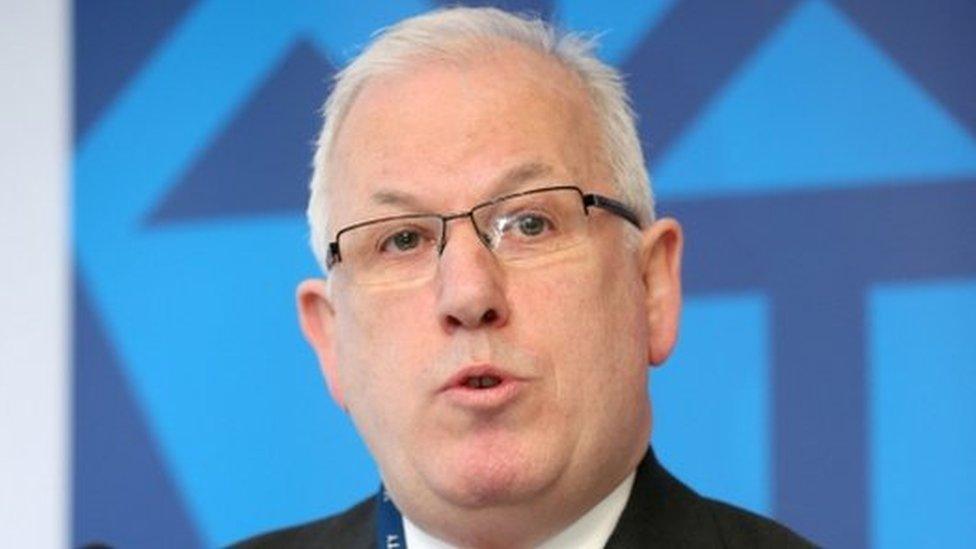Police chief asked for expenses 'in cash'
- Published
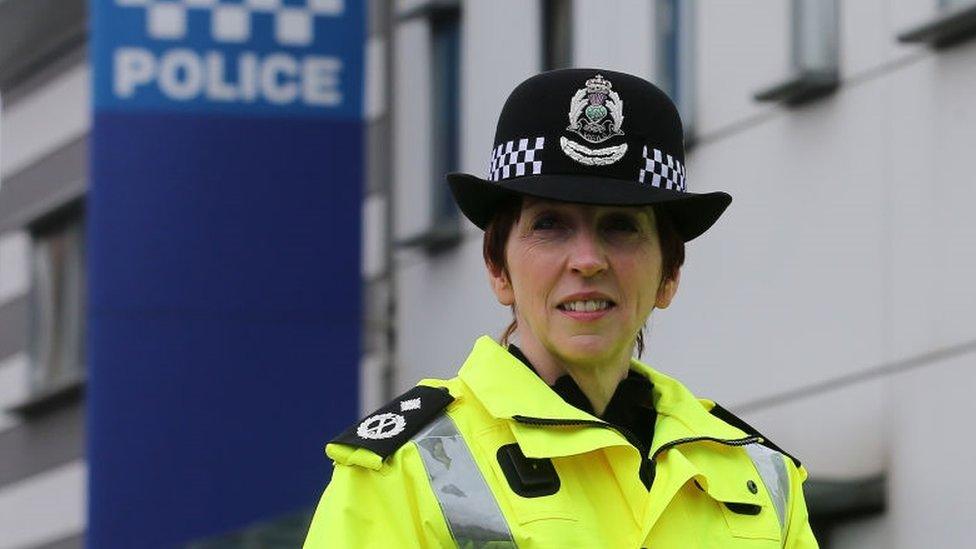
Deputy Chief Constable Rose Fitzpatrick was paid a £67,000 relocation package
Deputy Chief Constable Rose Fitzpatrick asked for relocation expenses to be paid by cash transfer, an employment tribunal has heard.
Scottish Police Authority accountant Amy McDonald said the payment would not have gone through the payroll system, where it would have been taxed.
Mrs McDonald said this was akin to a bonus payment and was against SPA and government rules.
The senior accountant claims she was frozen out after raising objections.

Ms McDonald told the tribunal the payment would not have gone through the payroll system
Previously Mrs McDonald had revealed four senior SPA figures, who cannot be named, had received payments totalling £350,000 to which she claimed they should not have been entitled.
This included a £165,000 "golden handshake" for a senior executive who had been arrested for domestic abuse just weeks previously.
The Scottish Police Authority oversees Police Scotland and helps set the single force's annual £1bn budget.
Mrs McDonald, who was the SPA's director of financial accountability, told the tribunal she raised objections with the watchdog's officials.
Two months later she took her concerns to the public spending watchdog Audit Scotland and Justice Secretary Michael Matheson.
Audit Scotland issued a scathing report into the SPA's finances in December and heavily criticised its "unacceptable" use of taxpayers' money.
DCC Fitzpatrick became Scotland's most senior female police officer when she moved from the Metropolitan Police in London in 2012, ahead of the formation of Police Scotland in April 2013.
The Audit Scotland report said the deputy chief constable was given £18,000 to relocate during the 2014/15 financial year, and another £49,000 for a similar move in 2016/17.
Mrs McDonald told the employment tribunal hearing in Glasgow, DCC Fitzpatrick had asked for a cash transfer to be made for the expenses although by then she had lived in Scotland for four years.

DCC Fitzpatrick appeared before MSPs at Holyrood on Thursday
Mrs McDonald said: "I could not see any exceptional circumstances to support this payment of relocation expenses.
"There was no event or circumstance which I can see to support the claim."
She said she viewed it as more akin to a bonus and added: "The SPA does not allow bonuses to be paid. And Scottish government rules also prevent bonuses from being paid."
She said normally such payments would go through the payroll.
Ms McDonald said: "The deputy chief constable asked for a cash transfer. This is something which does not go through the tax system."
In its report, Audit Scotland said relocation money paid to DCC Fitzpatrick and a further £53,000 to settle her tax liability in 2017 "did not represent a good use" of public funds.
It also rebuked the SPA for its poor accounting of these payments.
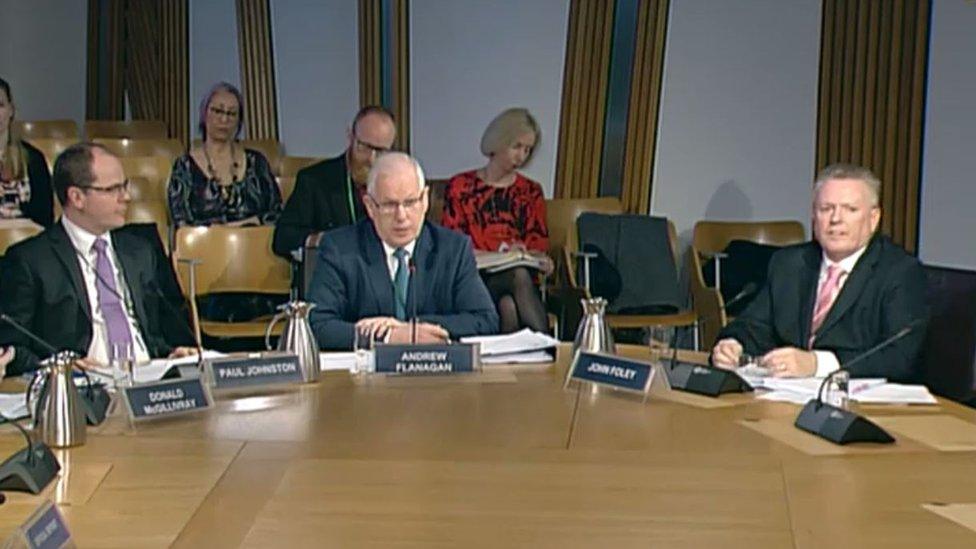
The watchdog report found "dysfunction" between SPA chairman Andrew Flanagan (centre) and chief executive John Foley (right)
The BBC understands that Ms McDonald's tribunal case relates to hundreds of thousands of pounds in further payments received by other senior figures in policing from the SPA, all of which she says she raised concerns about through the body's whistleblowing policy.
However, a court order obtained by the SPA prevents the names of those senior figures from being revealed in connection with the proceedings.
Last week the BBC's application to have the order removed was refused by the judge hearing the case.
Ms McDonald is a qualified chartered accountant who joined the SPA as director of financial accountability in 2014.
She is no longer in a financial role at the SPA having moved to a position with its forensic science team.
Mrs McDonald has now brought her case to the employment tribunal, arguing that she has suffered as a result of highlighting the potential financial wrongdoing.
Terrorism threat
The tribunal later heard that after Mrs McDonald had submitted her grievance, she was warned she had posed a terrorist threat to DCC Fitzpatrick.
In her application to the tribunal she had said that the deputy chief constable had sold her house but insisted she had only revealed the town and county where it was located.
Asked what she understood the threat to be, she said: "I had put DCC Fitzpatrick's personal safety at risk, potentially she could come to great harm as a consequence.
"Not harm just for DCC Fitzpatrick but for her family as well."
Mrs McDonald said she was extremely frightened by this and was put under a great deal of stress.
Lack of transparency
Meanwhile, the deputy chair of the SPA, Nicola Marchant, has announced she is stepping down on 21 March.
Ms Marchant was appointed to the role last year after concern that too much power was concentrated in the chairman.
It followed criticism of the then chairman, Andrew Flanagan, for taking decisions in closed meetings, and a lack of transparency.
Labour MSP Jenny Marra, convener of the Public Audit Committee, said: "Our committee has already expressed significant concerns about the performance of SPA board members who remained in post despite the board's previous unacceptable practices and poor-decision making.
"Dr Nicola Marchant's resignation is a step in the right direction. For governance to improve at the SPA, there needs to be clear understanding of good practice so it does not repeat the huge mistakes that were made in the past."
- Published14 March 2018

- Published25 January 2018
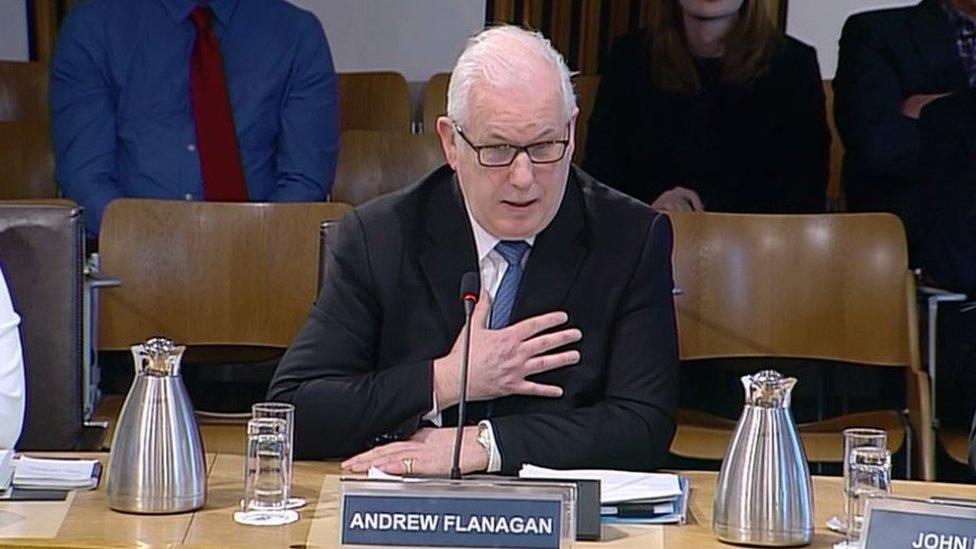
- Published8 December 2017
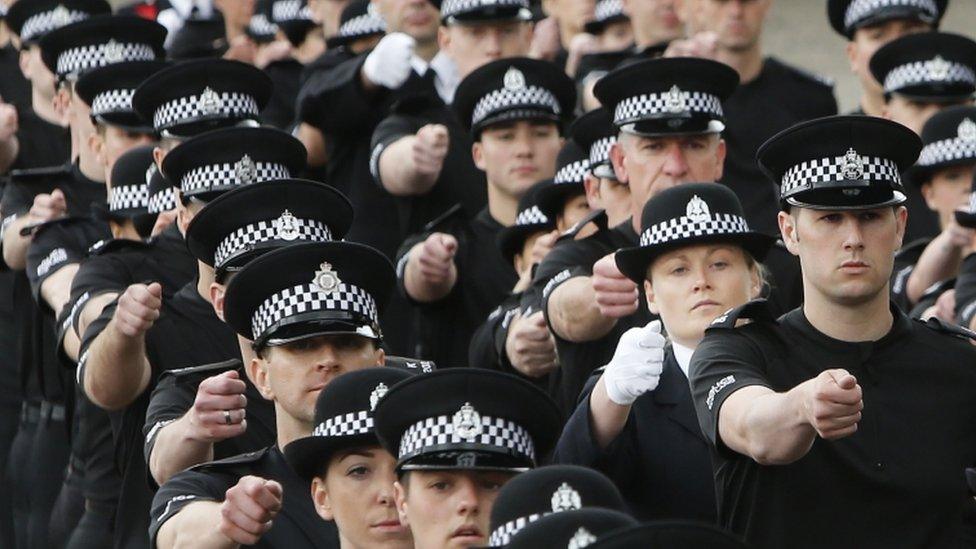
- Published24 August 2017
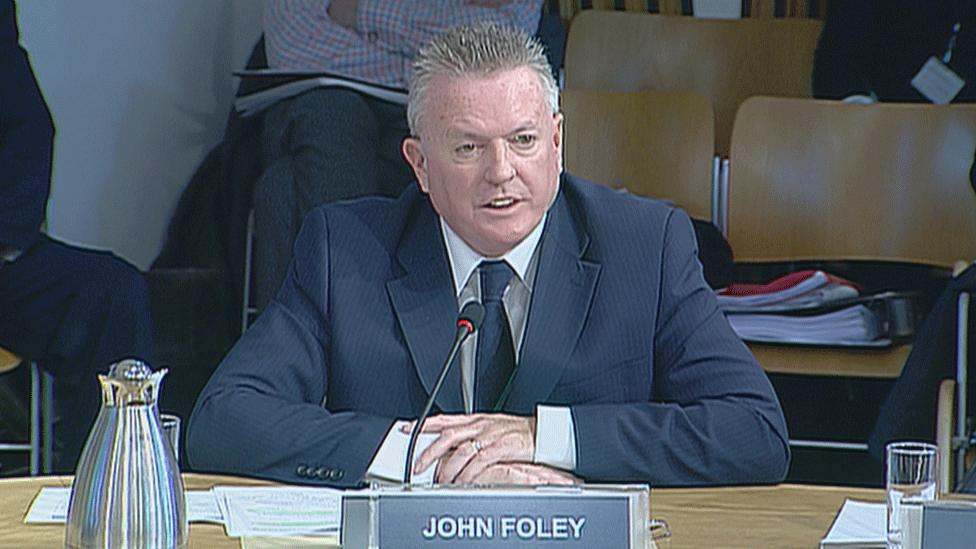
- Published14 June 2017
